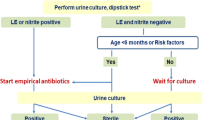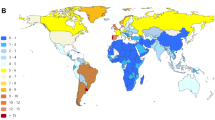Abstract
Management of childhood urinary tract infections is conceptually straightforward, but controversies persist. Specimens must be collected carefully or culture results can be difficult to interpret. Urine culture remains the diagnostic standard but does not substitute for careful urinalysis. Radiography studies are designed to define abnormalities predisposing patients to pyelonephritis and to assess the extent of renal involvement during infection, but there is no agreement on the most appropriate combination of studies. Circumcision reduces the incidence of urinary infections in male infants. Vaginal reflux may have an impact on recurrent infections, especially after courses of antibiotics. The importance of vesicoureteral reflux remains controversial because renal scarring appears to be related more to infection than to reflux itself. A strong argument can be made for the avoidance of prophylactic antibiotic therapy, even in patients with reflux. Increased attention to early diagnosis and treatment may be responsible for a decreasing incidence in renal failure from reflux nephropathy in children.
Similar content being viewed by others
Author information
Authors and Affiliations
Rights and permissions
About this article
Cite this article
Linshaw, M. Controversies in childhood urinary tract infections. World J Urol 17, 383–395 (1999). https://doi.org/10.1007/s003450050164
Issue Date:
DOI: https://doi.org/10.1007/s003450050164




